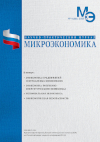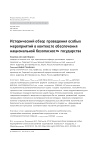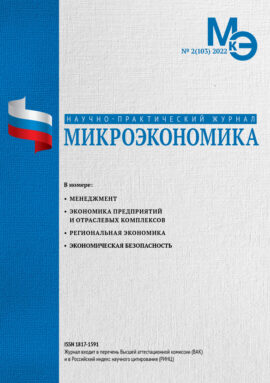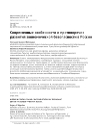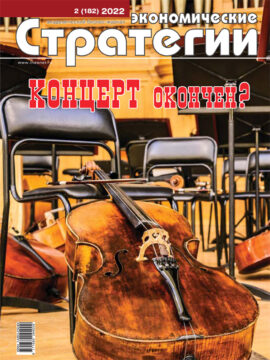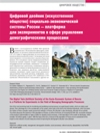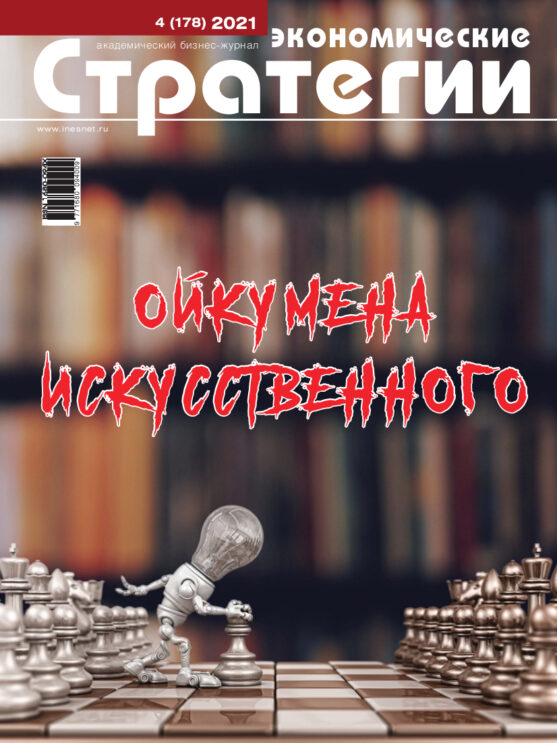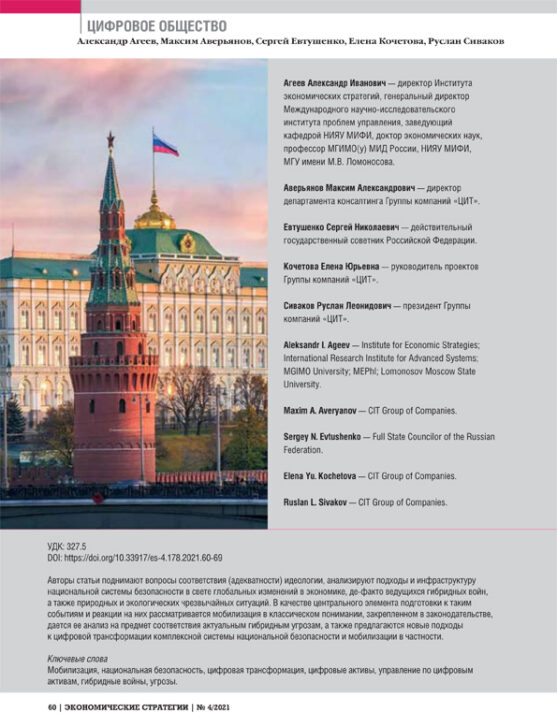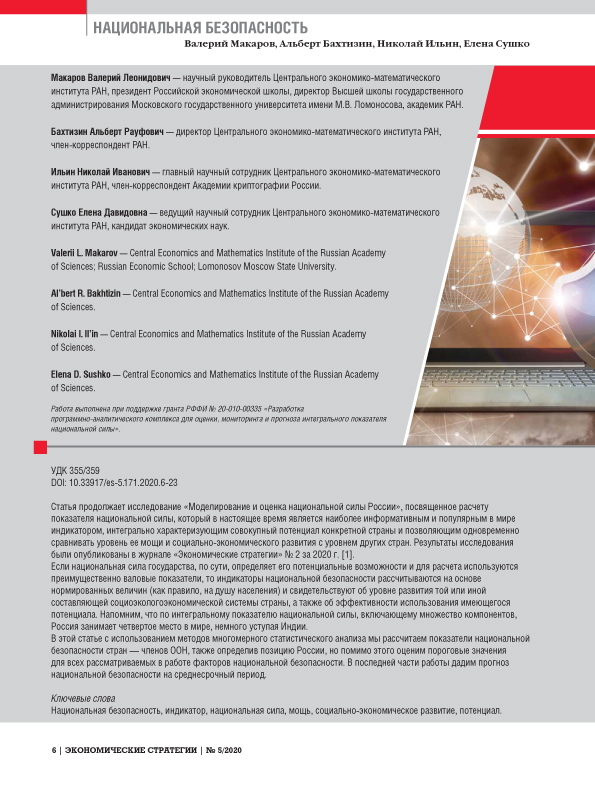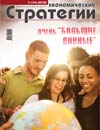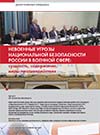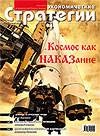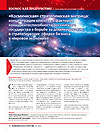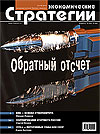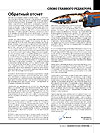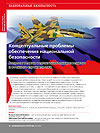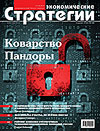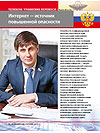Historical overview of the holding of special events in the context of ensuring the national security of the state
DOI: 10.33917/mic-4.111.2023.94-102
Presents a theoretical overview of the domestic experience of countering threats, replete with various forms of implementation in the form of military operations, counter-terrorism and other special operations that are aimed at strengthening the national security of the country and protecting national, geopolitical, strategic and economic interests from terrorist and other unfriendly threats potential enemy states of our country. The relationship between the conduct of special operations and the introduction of emergency regimes, a state of emergency and a counter-terrorist operation on the territory of Russia is noted. A definition of the concept of «special military operation» is proposed. The role of ensuring economic security as a priority of the national security of the state and the formation of patriotic principles of educating new generations to strengthen the country are determined.
References:
1. The Constitution of the Russian Federation: approved dated December 12, 1993 No. 343-FKZ; ed. dated 01.07.2020 No. 11-FKZ. SPS ConsultantPlus. Legislation. URL: http://www.consultant.ru/
2. On martial law: Federal constitutional law of 30.01.2002 No. 1-FKZ; ed. dated May 29, 2023. SPS ConsultantPlus. Legislation. URL: http://www.consultant.ru/
3. On the state of emergency: Federal constitutional law of May 30, 2001 No. 3-FKZ; ed. dated March 07, 2016. SPS ConsultantPlus. Legislation. URL: http://www.consultant.ru/
4. On the protection of the population and territories from natural and man-made emergencies: Federal Law of December 21, 1994 No. 68-FZ; ed. dated April 14, 2023. SPS ConsultantPlus. Legislation. URL: http://www.consultant.ru/
5. On countering terrorism: Federal Law No. 35-FZ of March 6, 2006 (as amended on May 26, 2021). SPS ConsultantPlus. Legislation. URL: http://www.consultant.ru/
6. Polyakov Yu. A. The end of Basmachism / Yu. A. Polyakov, A. I. Chugunov. M .: Nauka. 1976. 184 p. (In Russ.).
7. Gorobets K. Russian «Special Military Operation» and the Language of Empire. Opinio Juris (May 24, 2022). URL: http://opiniojuris.org/2022/05/24/russian-special-military-operation-and-the-language-of-empire
8. Kalmykova M. Study of the Influence of the War in Ukraine on the Russian Language. International Scientific Conference (March 13, 2023; Bratislava). Bratislava: Language and politics. Between linguistics and political science, 2023. URL: https://dspace.library.uvic.ca/bitstream/handle/1828/14840/Maria%20Kalmykova-JCURAposter-2023.pdf
9. Spišiaková M. Political Euphemisms and Neologisms in Online Media Content: Amid the War in Ukraine / M. Spišiaková, N. Shumeiko. Language and politics. Between linguistics and political science: University of Economics Bratislava, 2022. pp. 372–388. URL: https://conferences.euba.sk/jazykapolitika/www_write/files/2022/spisiakova_shumeiko.pdf
10. The Daily Journal of the United States Government / Executive Order 13405 of June 16, 2006. Blocking Property of Certain Persons Undermining Democratic Processes or Institutions in Belarus. URL: https://www.federalregister.gov/documents/2006/06/20/06-5592/blocking-property-of-certain-persons-undermining-democratic-processes-or-institutions-in-belarus


